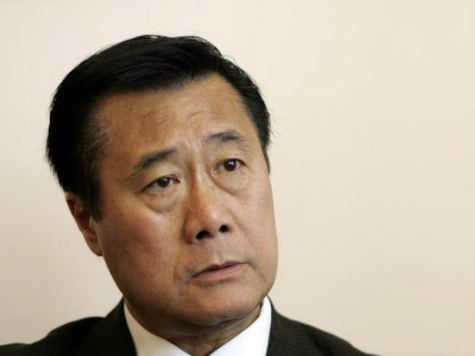It has not been a great run for California politicians, as many have been swept up in scandals which have prompted a series of proposed laws aiming to fix what is clearly broken.
Thus far this year, State Sen. Leland Yee was indicted on federal charges, along with former school board President Keith Jackson, for scheming to traffic firearms in exchange for thousands in campaign donations to Yee.
Democratic Sen. Rod Wright was convicted January 28th of eight felony counts of voter fraud and perjury. Wright was first indicted in 2010 on charges for lying on his voter registration form and candidate filings and committed voter fraud in five elections.
State Sen. Ron Calderon was indicted by federal authorities on 24 charges, including corruption, money laundering, and bribery.
State Sen. Alex Padilla (D-Los Angeles) obviously sees all this through rose colored glasses. He said, “The reason there’s indictments, the reason there’s trials is because the system is working.” However, Padilla does admit that there are some things that need to be done to “minimize the likelihood of this kind of bad behavior taking place to begin with.”
California state lawmakers are proposing several measures to clean up the mess:
• SCA17 by Senate President Pro Tem Darrell Steinberg amends the California Constitution to allow for suspension without pay of state lawmakers accused of corruption.
• SB1442 would increase campaign finance reporting and require prompt disclosure before an election.
• SB1443 reduces gift limits to $200; it also bans all gifts from lobbyists and the most lavish gifts given to state officials.
• SB1441 and AB1673 by Assemblywoman Cristina Garcia (D-Bell Gardens) would ban fundraisers in lobbyists’ homes.
• AB1666 and AB1692 by Garcia would prevent lawmakers from using campaign money to pay for ethics violations.
• SB831 by Sen. Jerry Hill (D-San Mateo) caps annual travel expenses at $5,000 and limits campaign spending for personal purposes.
Paradoxically, while the California state legislature is crafting ways to prevent state lawmakers from giving in to corruption and campaign finance violations, the Supreme Court of the United States in its ruling last week may be making it harder for politicians running for U.S. congressional offices to resist. As reported in the San Jose Mercury News, the Supreme Court wiped out aggregate limits for campaign donors that would have restricted a donor to giving a total of $48,600 to various federal candidates and $74,600 to political parties and political action committees.
Now, one person may give $5,200 to each of the 535 members of Congress–about $2.78 million. But there is no limit on how many PACs can exist, so there’s practically no limit to how much influence a single donor can have over the political process. This turn of events plays nicely into the hands of the wealthy Silicon Valley elite.

COMMENTS
Please let us know if you're having issues with commenting.